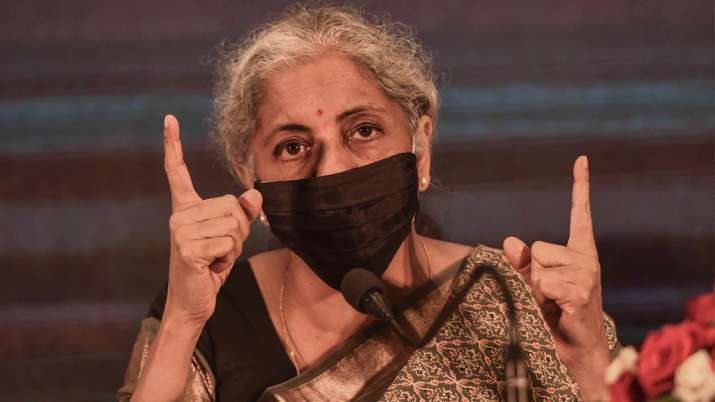Santosh Kumar Mohapatra
Union Finance Minister Nirmala Sitharaman August 23 launched the National Monetisation Pipeline comprising brownfield assets with an aggregate monetisation potential of `6 lakh crore, which will be available for lease/licensing to private investors over four years from 2021-22 to 2024-25. For the current fiscal, the target is `88,000 crore.
Roads, railways, and power sector assets will comprise over 66 per cent of the total estimated value of the assets to be monetised, with the balance coming from sectors including telecom, mining, aviation, ports, natural gas and petroleum product pipelines, warehouses, and stadiums.
Opposition leaders have dubbed the monetisation plan as ‘legalised loot and organised plunder,’ a ‘grand closing-down sale,’ a ‘dangerous’ move, and ‘a surreptitious way of handing invaluable public assets, created over decades, to a chosen few.’
Sitharaman said monetisation will explore innovative ways of private participation without transfer of government ownership and whatever resource obtained by monetisation, the same can be used for further investment into infrastructure building. She cited some cases of asset monetisation during the UPA regime to justify her decision.
But monetisation involving most vital assets worth gigantic amounts is not the same as asset monetisation of a trivial amount during the UPA regime. The plan for such a gargantuan amount of asset monetisation shows the bankruptcy of the government, which is failing to raise resources by taxing the rich, the corporates and curbing tax evasion. This is clearly reflected in our abysmal tax-GDP ratio, one of the lowest in the world.
The government is defending its decision by labelling monetisation as an act of just leasing national infrastructural assets to generate revenue to create new infrastructure. This means the government will part with its assets for a specified period of time in exchange of lump sum payments. But the government obscures the fact that the leaseholders of those infrastructural assets will not be guided by philanthropy. There will be deliberate undervaluation of assets only to enable the corporate behemoths to take over those vital infrastructural assets at throwaway prices. In the process, the lease periods will be extended and finally, ownership will be handed over to them.
Under the garb of monetisation, the leaseholders will be profiting out of this venture and will charge exorbitant rents from users of those assets. This is nothing but a way of weaponising the corporate and the rich to loot and plunder national assets.
The bigger question is why suddenly asset monetisation, disinvestment, and privatisation have become the government’s core agenda while no efforts are being made to tackle the intricate problems of poverty, hunger, unemployment, inequality, inflation, erosion of people’s purchasing power, banking frauds, massive tax evasion, and decline in corporate tax revenue. No amount of concern is expressed toward the sufferings of people who were affected by COVID-19 or whose family members have succumbed to the disease.
Actually, this is nothing but the combination of ‘disaster authoritarianism’ and ‘shock doctrine.’ Canadian author and social activist Naomi Klein, in his book The Shock Doctrine: The Rise of Disaster Capitalism, had used the term ‘shock doctrine’ to describe the atrocious tactic of using the public’s bewilderment following a collective shock – war, coup, terrorist attack, market crash, or natural disaster – to push through radical pro-corporate measures, often called ‘shock therapy.’
This is exploitation of national crises such as disasters or pandemics to establish controversial and questionable policies, while citizens are too distracted (emotionally and physically) to engage and develop an ample response, and resist effectively.
Shock tactic follows a clear pattern: wait for a crisis, declare a moment of what is sometimes called ‘extraordinary politics,’ suspend some or all democratic norms and then push the corporate wishlist through as quickly as possible.
For autocrats, the pandemic is a chance to grab even more power, while for the rich and the corporate, it is a way to accumulate more wealth and acquire national assets at cheaper price.
A paradoxical situation witnessed in India is that at a time when big government is back in advanced countries, India is going in the reverse gear. Recently, the UK has taken recourse to re-nationalisation of the railway with PM Boris Johnson saying the privatisation of the British Rail in 1993 was a botched one that led to “fragmentation, confusion and over-complication.”
Democrats in Washington are working to enact the largest spending package in America’s history—with a price tag of $4.7 trillion. A $1.2 trillion so-called ‘infrastructure’ bill package that includes funding for roads, bridges, electric vehicles, broadband, cyber security, water infrastructure, and grid resilience, among other priorities was passed by the Senate August 8. Two days later, a $3.5 trillion ‘infrastructure’ reconciliation package that would expand medicare, tax credits, and climate initiatives was approved by the Senate.
According to the World Bank (July 2018), social development focuses on the need to ‘put people first’ in the development processes. It is about improving the well-being of every individual in society so that they can reach their full potential. The success of a society is linked to the well-being of each citizen. Hence, social development means investing in people which requires the removal of barriers so that all citizens can make a journey toward their dreams with confidence and dignity. But the present Indian government is doing just the opposite and its policies are strewn with pitfalls.
After the ‘Make-in India’ fiasco, the demonetisation disaster, the GST imbroglio, the ‘jumla’ of Aatmanirbhar Bharat, the monetisation of assets is another flawed initiative which may lead to the intensification of crony capitalism, create private monopolies, and trigger outright plunder of people’s wealth.
The writer is an Odisha-based economist and columnist.
